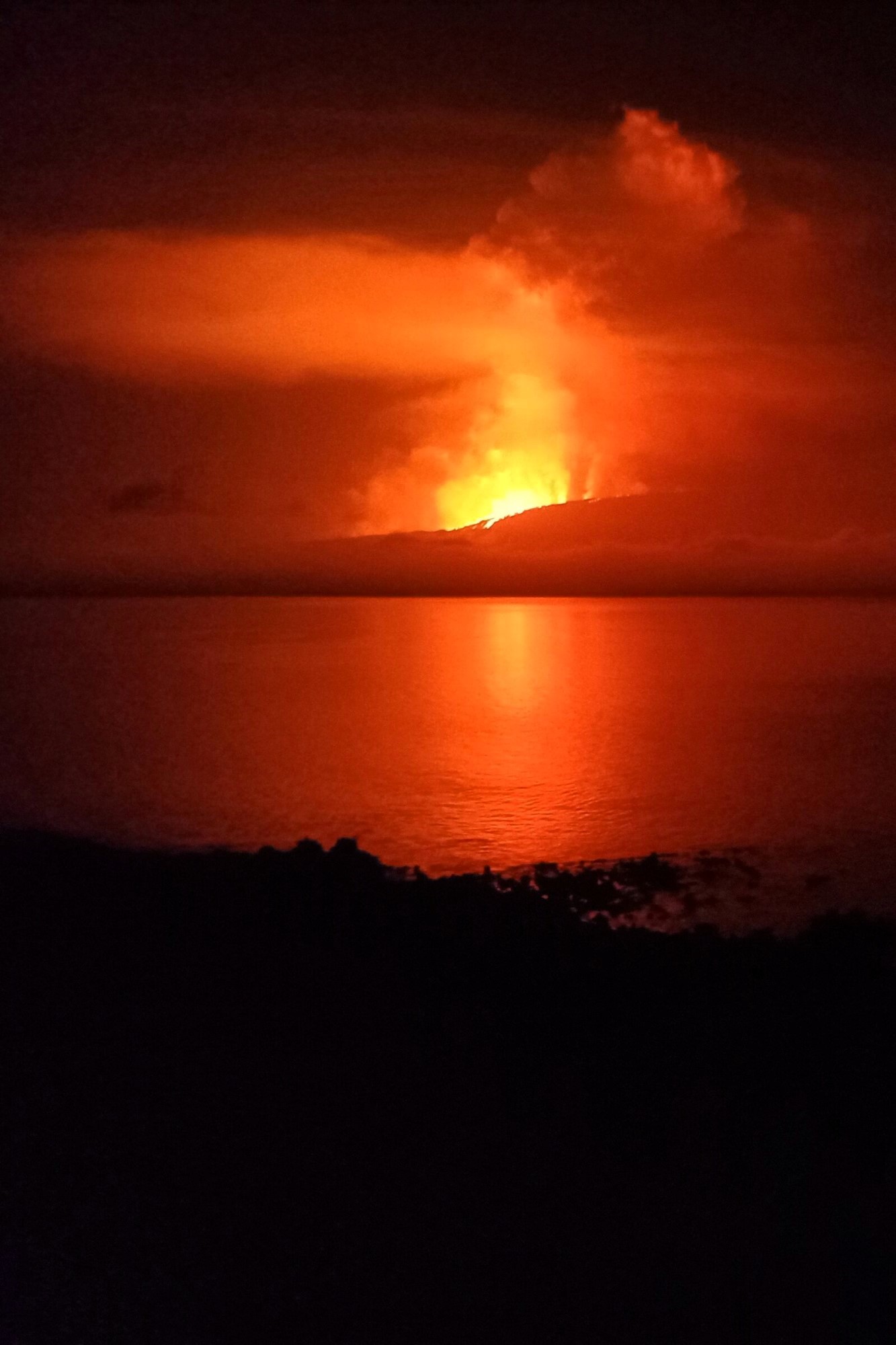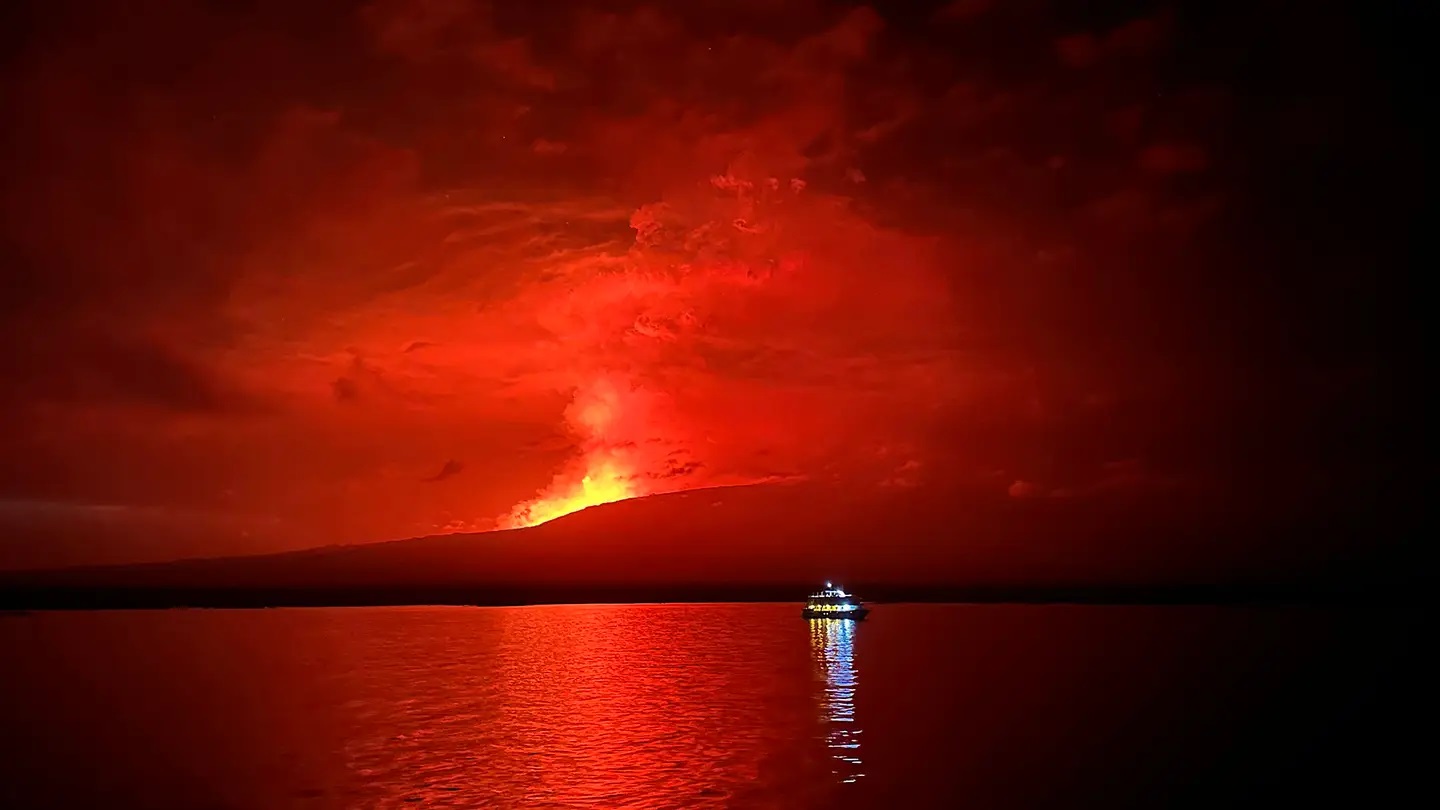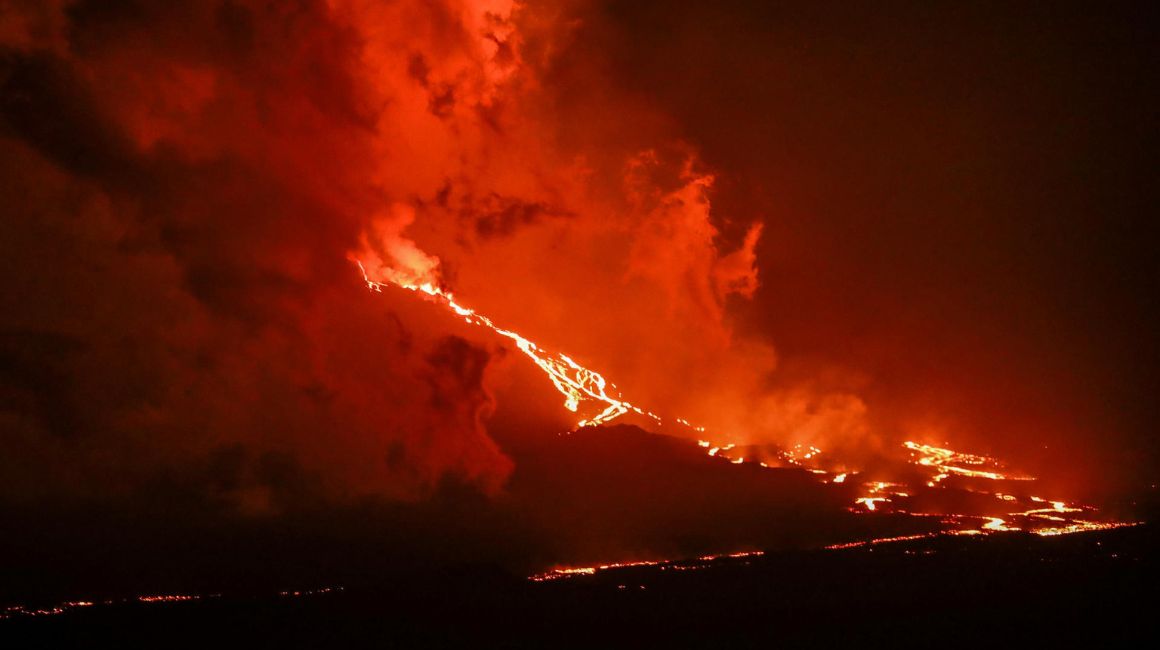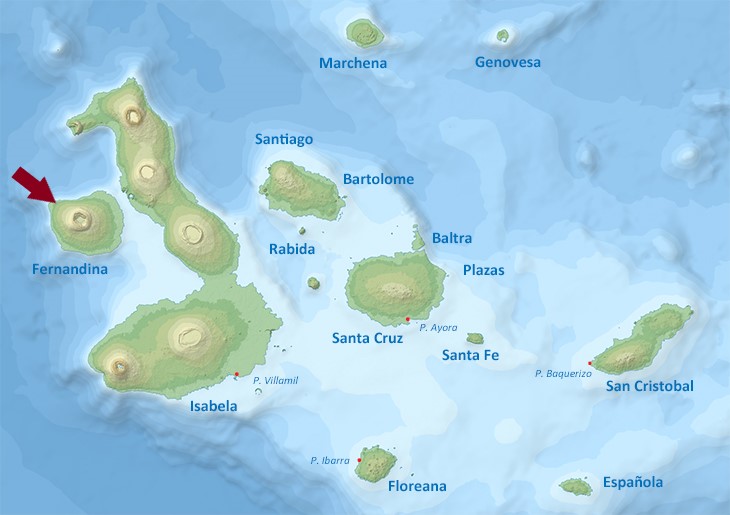
SIGN UP TO RECEIVE
15% OFF
IN YOUR NEXT TOUR

La Cumbre volcano erupts on Fernandina Island, Galapagos
SCROLL DOWN TO READ

La Cumbre volcano erupts on Fernandina Island, Galapagos
SCROLL DOWN TO READ
La Cumbre volcano erupts on Fernandina Island, Galapagos
The Geophysical Institute of Ecuador reported that, during the night of this Saturday, March 2, 2024, the volcano La Cumbre, located on the uninhabited island of Fernandina in the Galapagos archipelago, has erupted. The event occurred at 23:50 local time (00:50 on Sunday, March 3, mainland time) when a thermal anomaly and a gas emission indicating the beginning of an eruptive process on La Cumbre, which rises 1,463 meters above sea level, were observed.

Despite the eruption, the population is reassured, as the gas cloud, although without much ash, was blown by the wind without reaching the populations of other nearby islands, such as Puerto Villamil, on Isabela Island. The Geophysical Institute has confirmed the presence of a circumferential fissure on the south flank of the volcano, thanks to videos shared on social media showing the ongoing eruption.
This event marks the fourth eruption of the La Cumbre volcano in almost eight years, the last one being in January 2020. The duration of the current eruption cannot be accurately predicted, but there are indications that it could be more intense than previous ones.
For tourists visiting the region, an urgent safety advisory was issued: stay away in case lava flows enter the sea, as this could trigger small explosions and the release of toxic gases, putting the health of those nearby at risk.
Fernandina Island, although uninhabited, hosts unique biodiversity, including endemic species such as the yellow land iguana and the Chelonoidis phantasticus turtle, the latter discovered in 2019, previously thought to be extinct.

Galapagos, globally recognized for its contribution to the theory of evolution thanks to the work of Charles Darwin, is a place of great scientific and touristic interest, hosting a biosphere reserve with a delicate ecosystem and unique flora and fauna in the world.
Ecuadorian authorities continue to closely monitor the situation on Fernandina, while urging tourists and the local population to stay informed and follow the recommended precautions during this volcanic activity.
